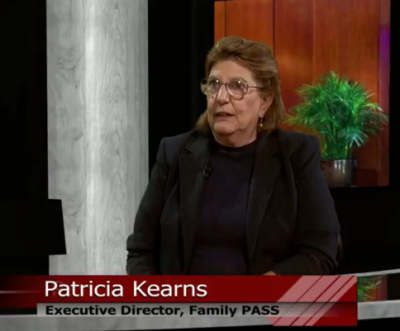Family PASS – Patricia Kearns – Your Need to Know
(Aug. 29, 2018) Catherine Read interviews Patricia Kearns, Executive Director of Family PASS (Preservation And Strengthening Services). The mission of Family PASS is to help families who are homeless, or are at risk of homelessness, in Fairfax County connect with the support services that they need to become self-sufficient. The work of Family PASS is an integral part of Fairfax County’s 10-year plan to prevent and end homelessness in the community.

Kearns explains how the system works for a person or family who is at risk of homelessness in Fairfax County. The Coordinated Services planning office will assess the needs of a family, and then refer them to a partner organization that can help. When a family is identified as needing emergency assistance in order to remain in their home, they are directed to Family PASS.
Family PASS also receive referrals from organizations like Northern Virginia Family Services, who embrace the “housing first” philosophy. After a family gets settled with housing, they might be referred to Family Pass for additional support services, so that they can acquire the skills that they need to remain in their home. For example, they may need help with financial literacy skills so they understand how to budget the money that they do have in order to ensure that they do not lose their home.
Although Kearns notes that there are 987 homeless individuals who are identified in Fairfax County today (a reduction in half of what it was in 2008), there are still many more people living on the edge who are at extreme risk of losing their homes. Approximately 20,000 people fall into this category, while another 63,000 people are living at or just below the poverty line.
These are the working poor, those who make minimum wage in low skill service jobs. Many of these people are in shared housing arrangements because of the lack of affordable housing here in Fairfax County. She also points out that the minimum wage of $7.25/hour, is not a living wage. These individuals cannot support themselves, let alone a family, on this meager income. This situation leads to people trying to hold down multiple jobs in order to make ends meet. Kearns encourages all who are watching to bring up the issue of affordable housing and a living wage to their local elected officials. People can appeal to their local supervisors, town councils and state legislators to urge them to support these important initiatives.